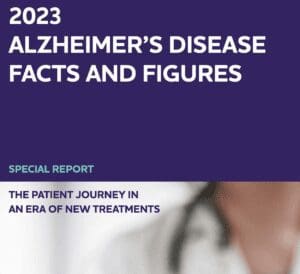Search Posts
Recent Posts
- A Greener View: E. Coli vs. Vegetables, and Your Garden – Jeff Rugg June 22, 2025
- Rhode Island Weather for June 22, 2025 – Jack Donnelly June 22, 2025
- The Bellevue Hotel: Procaccianti Cos. to Build Luxury Boutique Hotel on Newport’s Iconic Bellevue Ave June 22, 2025
- Ask Chef Walter: The Art and Science of Baking – Chef Walter Potenza June 22, 2025
- Gimme’ Shelter: Aurora is waiting for a home at the Providence Animal Control Center June 22, 2025
Categories
Subscribe!
Thanks for subscribing! Please check your email for further instructions.

A close look on “Facts and Figures” about Alzheimer’s – Herb Weiss
by Herb Weiss, contributing writer on aging issues
For over five years, Janet Bryant, 65, has been a caregiver for her 67-year-old husband, Paul, who suffers from Alzheimer’s disease. Their daughter, Alison, and husband Ryan, living in the condo above her parents, step in to assist with caregiver duties when needed.
“It’s often a long day when you’re caring for someone with dementia,” says Janet, who handles all financial, medical and household tasks. Even when Paul helps out with a few tasks he must be closely supervised, she says. And you must be watchful. “A few weeks ago, Paul was trying to make a cup of tea, and put the metal tea kettle in the microwave, causing the handle to burst into flames. I disabled the microwave and now I make him his tea. His wife of 47 years says he can’t be left alone, and gets lost in their small condo.
Janet acknowledges that the long day often continues into night, as Paul has trouble finding the bathroom or tries to roam around.
Janet’s experiences as a caregiver taking care of a loved one with Alzheimer’s disease is not uncommon. The newly released Alzheimer’s Disease Facts and Figures reports that 6.7 million people aged 65 and over, like Paul, are living with Alzheimer’s or other dementias in the United States — it’s one of the costliest conditions to society and is projected to reach $345 billion, a $24 billion increase from a year ago. By 2050 these costs could rise to nearly $1 trillion.
In 2022, like Janet, more than 11 million caregivers provided unpaid care for people with Alzheimer’s or other dementias, providing an estimated 18 billion hours of unpaid assistance — a contribution valued at $339.5 billion, noted Facts and Figures.
Taking a look at Facts and Figures

The Alzheimer’s Association’s 2023 Facts and Figures report (the first released in 2007) provides an in-depth look at the latest national and state-by-state statistics on Alzheimer’s disease prevalence, mortality, caregiving, dementia care workforce and costs of care.
Alzheimer’s disease is not a normal part of aging; it’s a devastating cognitive disorder that will be the number 1 killer by 2050. This year’s Fact and Figures findings indicate that 1 in 3 seniors dies with Alzheimer’s or another dementia. This devastating disorder also kills more than breast cancer and prostate cancer, combined. Between 2000 and 2019, deaths from heart disease have decreased by 7.3% while deaths from Alzheimer’s disease have increased by 145%.
Researchers found that while only 4 in 10 Americans talk to their physician right away when experiencing early memory or cognitive loss, 7 in 10 would want to know if they have Alzheimer’s disease if it could allow for earlier medical treatment.
This year’s report also examines the capacity of the medical specialty workforce essential for diagnosis, treatment and ongoing care for people living with Alzheimer’s and all other types of dementia. The shortage of dementia care specialists could soon become a crisis for Alzheimer’s disease care, warn the researchers, especially with the recent FDA accelerated approval of new treatments targeting the underlying biology of Alzheimer’s disease, which is reframing the health care landscape for people with early-stage Alzheimer’s or MCI due to Alzheimer’s disease.
Caring for those living with Alzheimer’s or other dementias poses special challenges, the report noted. As dementia symptoms worsen, caregivers can experience increased emotional stress (59%), depression, anxiety, chronic stress, and new or exacerbated health problems. Additionally, caregivers often experience depleted income and finances due to disruptions in employment, and paying for health care or other services for both themselves and those with dementia.
While recent advancements in treatment of early-stage Alzheimer’s, including mild cognitive impairment (MCI) due to Alzheimer’s disease, are providing hope to millions living with memory loss and early cognitive decline, the latest Fact and Figures finds too often individuals with memory concerns, and their doctors, are not discussing the issue, missing a critical first step toward diagnosis and potential treatment.
“Providing the best possible care for Alzheimer’s disease requires conversations about memory at the earliest point of concern and a knowledgeable, accessible care team that includes physician specialists to diagnose, monitor disease progression, and treat when appropriate,” said Maria C. Carrillo, Ph.D., chief science officer of the Alzheimer’s Association, in a statement announcing the release of the 128-page report.
“For the first time in nearly two decades, there is a class of treatments emerging to treat early-stage Alzheimer’s disease. It’s more important than ever for individuals to act quickly if they have memory concerns or experience symptoms.”
An accompanying special report, The Patient Journey in an Era of New Treatments, offers new insights from patients and primary care physicians (PCPs) on current barriers that impede earlier discussion of cognitive concerns. Focus groups reveal many people with subjective cognitive decline (self-reported memory concerns) do not discuss cognitive symptoms with their health care providers. Previous special reports have indicated many people believe their experiences are related to normal aging, rather than a potential diagnosable medical condition.
Taking a close look at Rhode Island
The number of people aged 65 and over with Alzheimer’s and other dementia continues to increase in Rhode Island, from 24,000 in 2020, and expected to climb to 27,000 by 2025. That’s an estimated 12.5% increase. Fifty-two percent of Rhode Island caregivers report having one chronic condition, 41% say they are depressed and 11% rate their health as poor.
Currently there are 36,000 unpaid caregivers in the Ocean State providing about 51 million total hours of uncompensated care (valued at over $1.29 million).
The cost of health care continues to skyrocket to care for those with Alzheimer’s and other dementias. The state’s Medicaid program spends over $470 million, with the projected cost to increase by 20.1% by 2025.
Two years ago, there were 33 practicing Geriatricians in Rhode Island. By 2050, a 48.5% increase of this medical specialty will be needed to meet the patient care demands. Three years ago, there were 7,410 Health and Personal Care Aides providing care. By 2030, an increase of direct care workers by 27.5% will be needed to provide personal care.
Implications for Rhode Island lawmakers, state officials
Donna McGowan Executive Director of the RI Chapter of the Alzheimer’s Association expects the release of the latest Alzheimer’s Disease Facts and Figures to educate state policy makers about the impact of Alzheimer’s on their own communities and districts, specifically the number of Rhode Islanders living with Alzheimer’s or related dementia, and the number of caregivers who provide for them.
“Further, along with personal discussions, the report will help them to understand the reality that many of their constituents are hesitant to seek a medical diagnosis, or even support it. And the report will highlight for policy makers the crisis that is the shortage of workers in the Alzheimer’s and related dementia professional caregiving field,” notes McGowan.
As the 2023 Alzheimer’s Disease Facts and Figures indicates, a growing number of caregivers have approached the Rhode Island chapter to access programs and services, says McGowan. Last fiscal year, approximately 4,600 individuals contacted the Rhode Island chapter to access programs and services which equated to an “8% overall increase over the previous fiscal year,” she said.
According to McGowan, this year they are tracking approximately a 16% increase in individuals contacting their helpline, totaling approximately 5,336 individuals accessing programs and services.
“With the report showing we may not have sufficient specialist capacity to deal with the projected increase in Rhode Islanders with ADRD, there is a critical need to provide Rhode Island primary care practices with the training needed to care for persons with dementia and their caregivers,” says Maureen Maigret, Policy Advisor for Senior Agenda Coalition of RI (SACRI), who also serves on the state’s Advisory Council on Alzheimer’s Disease and Care and a member of The Care Transformation Collaborative (CTC). Fortunately, the CTC, in partnership with the Rhode Island Department of Health, is offering such training now through the state’s Geriatric Education Center.
“And with a projected need for close to a 30% increase in home health aides and personal care attendants, the workforce shortage will worsen dramatically if we fail to increase direct care staff wages and expand training staff to care for persons with ADRD,” warns Maigret, noting that this is why SACRI is advocating for funding to increase direct care staff wages to a minimum of $20 an hour.
“As the prevalence of people living with dementia continues to increase in Rhode Island, the health system and long-term care continuum will be challenged by the findings highlighted in this report,” says Nancy Sutton, MS, RD, the Rhode Island Health Care Department’s (RIDOH) Chief, Center for Chronic Care and Disease Management. “RIDOH, the Rhode Island Alzheimer’s Disease and Related Disorders Advisory Council, and our many partners are committed to continuing efforts to educate the public on the importance of speaking to a healthcare provider about memory concerns, she said.
Sutton says, “with the support of federal funding, resources such as a Brain Health Toolkit are being developed to support health system partners in their engagement in conversation with patients and caregivers about the importance of early detection and navigating complex systems of care and community resources to support people living with dementia.”
“We know that age is a big risk factor for Alzheimer’s Disease and Related types of Dementia (ADRD),” said the RI Office of Healthy Aging (OHA) Director Maria Cimini. “As Rhode Islanders age if they or their caregivers are concerned about memory loss, we encourage them to talk to their physicians and get connected to resources through the Point, 401-462-4444 or through myoptionsri.gov to help navigate this journey.”
At OHA, we have worked to build comfort and capacity among physicians through a recent Alzheimer’s Disease Programs Initiative (ADPI) grant with the focus of expanding the Dementia-Capable Home and Community Based Services which include outreach and education of primary care/direct service providers in identification, diagnosis, referral, and care planning process for ADRD and to provide services supportive of individuals living with dementia and their family caregivers within the statewide Aging and Disability Resource Center. OHA and its partners developed a provider resource tool to assist providers with referring patients with cognitive symptoms and family caregivers to services; and it also provides guidance to providers in conducting care planning, and billing for dementia-related services. That resource can be found here: https://oha.ri.gov/resources/oha-resource-center.
For a copy of the 2023 Alzheimer’s Disease 2023 Fact and Figures, go to: https://www.alz.org/alzheimers-dementia/facts-figures.
For a copy of the accompanying special report, The Patient Journey in an Era of New Treatments, to https://www.alz.org/media/Documents/alzheimers-facts-and-figures-special-report.pdf.
The Alzheimer’s Association’s 24/7 Helpline clinicians guide callers to financial assistance programs that may help pay for respite or a needed break. Caregivers will also find programs and services offered by this organization, too. For details, go to https://www.alz.org/ri.
___

Herb Weiss, LRI ’12, is a Pawtucket-based writer who has covered aging, health care and medical issues for over 42 years. To purchase his books, Taking Charge: Collected Stories on Aging Boldly, and a sequel, compiling weekly articles published, go to herbweiss.com.

